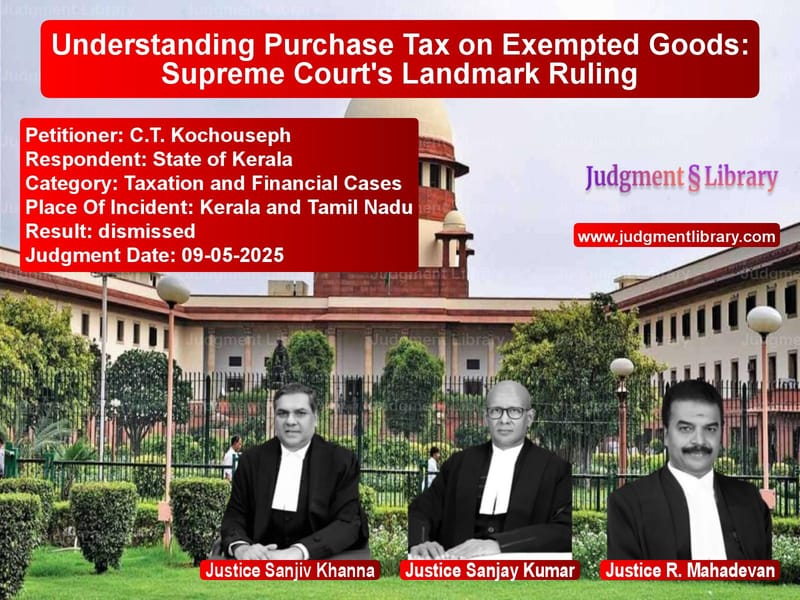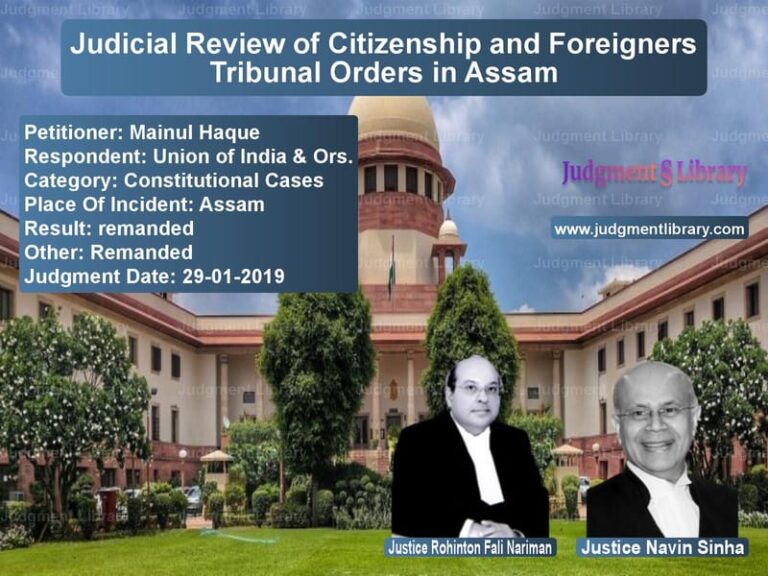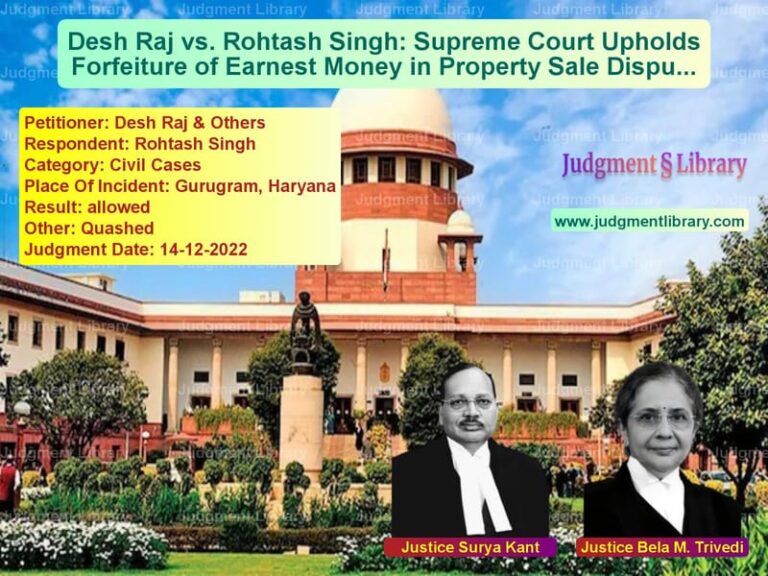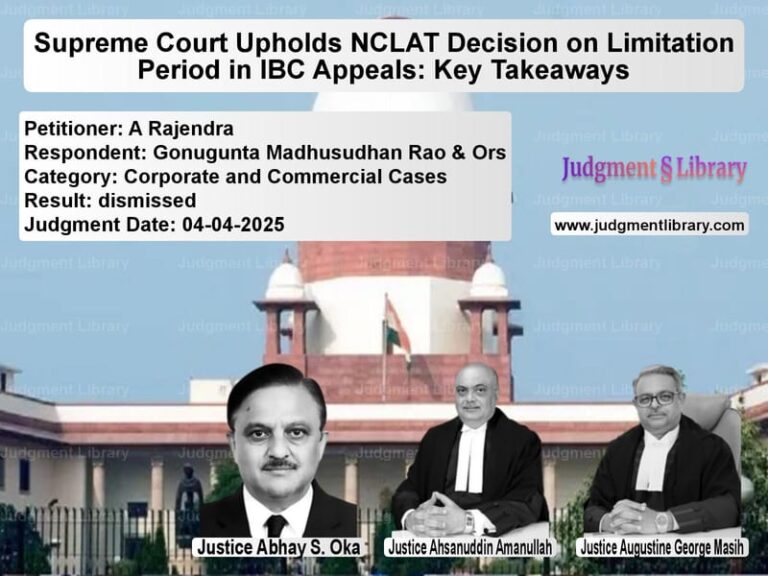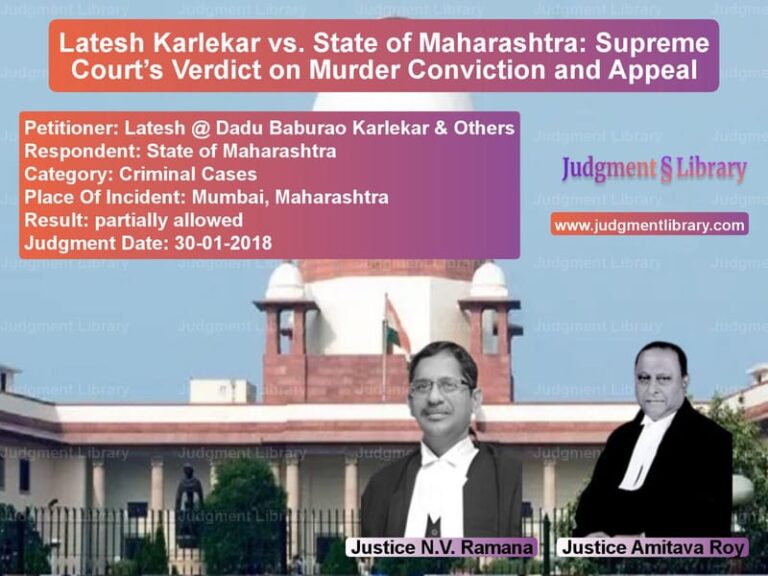Understanding Purchase Tax on Exempted Goods: Supreme Court’s Landmark Ruling
In a significant ruling that clarifies a long-standing legal issue, the Supreme Court of India has delivered a decisive judgment on the applicability of purchase tax under state sales tax laws. The case, which involved a batch of appeals concerning the Kerala General Sales Tax Act, 1963 and the Tamil Nadu General Sales Tax Act, 1959, revolved around a critical question: can the state impose a purchase tax on goods when the seller was exempt from paying sales tax? The Court’s answer was a resounding yes, bringing clarity to a complex area of tax law that, while now largely historical due to the introduction of VAT and GST, had significant financial implications for many businesses.
The legal dispute was essentially a legacy matter, as the Court itself noted, since the enactment of Value Added Tax in 2005 and the Goods and Services Tax in 2017 has fundamentally changed India’s indirect tax landscape. However, the principles established in this judgment remain important for understanding the constitutional boundaries of state taxation powers and for resolving pending disputes from the pre-GST era.
The Core Legal Questions
At the heart of the matter were three fundamental questions that the Supreme Court needed to resolve. First, whether purchasing goods from dealers who were exempt from tax payment meant the purchase was not “liable to tax” under the relevant state laws. Second, whether assessees who purchased such exempt goods were liable to pay purchase tax. Third, and most fundamentally, whether the purchase tax itself was constitutionally valid or whether it overstepped the state legislature’s powers by effectively imposing a manufacture, consignment, or inter-state levy.
The appellants, including C.T. Kochouseph and various other businesses, argued that when goods were exempt from sales tax at the point of sale, they could not be considered “liable to tax” for purchase tax purposes either. They contended that exemption notifications benefited both sellers and purchasers, and that imposing purchase tax in such circumstances amounted to double taxation or created taxes beyond the state’s constitutional authority.
The Statutory Framework
To understand the Court’s reasoning, one must examine the relevant statutory provisions. Section 5A of the Kerala Act and Section 7A of the Tamil Nadu Act, which are largely similar, create what the Court described as “a separate and independent charge” distinct from the regular sales tax provisions. These sections specifically apply when a dealer purchases goods in circumstances where no sales tax is payable under the main charging sections, and then either consumes them in manufacturing, disposes of them other than by sale within the state, or dispatches them outside the state except through inter-state trade.
The Court explained the fundamental distinction between taxability and payability. As the judgment states: “The concept of ‘taxability/leviability’ is different and distinct from the concept of ‘payability’. That is why when the goods, which are otherwise liable to tax, are exempted by virtue of notification from payability under Section 10 of the Act, Section 5A of the Act has been enacted to levy tax on certain transactions on which otherwise the State loses its revenue.”
Historical Legal Interpretation
The Court extensively reviewed its own previous decisions on similar provisions. The cornerstone precedent was the 1975 ruling in State of Tamil Nadu v. M.K. Kandaswami and Others, where a three-judge bench had interpreted Section 7A of the Madras General Sales Tax Act. In that case, the Court had identified six essential ingredients that must be satisfied for purchase tax to apply, including that the purchaser must be a dealer, the purchase must be in the course of business, and the goods must be of a type generally liable to tax under the Act even if exempt in the particular transaction.
The Court in Kandaswami had made a crucial distinction that would echo through subsequent cases: “The expression – ‘goods, the sale or purchase of which is liable to tax under the Act’, refers to the character and class of goods in relation to their exigibility. Essentially, this expression is held to define ‘taxable goods’, that is, goods listed in the First Schedule of the Act, the sale or purchase of which is subject to tax at the specified rate and point of levy.”
This interpretation was crucial because it established that what matters is not whether tax was actually paid on a particular transaction, but whether the goods themselves were of a type that could generally be taxed under the Act.
Conflicting Precedents and Resolution
The legal landscape became complicated when subsequent decisions appeared to conflict with the Kandaswami reasoning. In Goodyear India Ltd. v. State of Haryana and Mukerian Papers Ltd. v. State of Punjab, the Court had taken a different view, suggesting that purchase tax became payable only when goods were used in manufacturing or dispatched outside the state, and that the taxable event was this subsequent use or movement rather than the purchase itself.
However, the three-judge bench in Hotel Balaji v. State of A.P. later disagreed with the Goodyear approach, reaffirming the principles established in Kandaswami. The Court in Hotel Balaji explained the policy rationale behind purchase tax provisions: “The object is to tax the purchase of goods by a manufacturer whose existence as such goods is put an end to by him by using them in the manufacture of different goods in certain circumstances. The tax is levied upon the purchase price of raw material, not upon the sale price – or consignment value – of manufactured goods.”
This reasoning was further affirmed in Devi Dass Gopal Krishan Pvt. Ltd. v. State of Punjab, where the Court explicitly stated that “the approach adopted in Goodyear does not accord with the scheme, intendment and language of the relevant provisions of the Haryana and Bombay Acts and cannot be accepted.”
The Court’s Final Analysis
In resolving the current batch of appeals, the Supreme Court firmly aligned itself with the Kandaswami and Hotel Balaji line of reasoning. The Court emphasized that Sections 5A and 7A are independent charging provisions designed specifically for situations where the state would otherwise lose revenue due to exemptions granted to sellers.
The Court made several key observations that form the core of its ruling. It noted that “exemption from payment of tax at the time of sale is a pre-condition for attracting Sections 5A and 7A respectively.” This might seem counterintuitive at first, but it highlights the specific purpose of these provisions – to ensure that the state can collect revenue on goods that would normally be taxable but escape taxation due to specific exemptions.
Addressing the constitutional challenge, the Court upheld the validity of the purchase tax provisions, stating that “purchase tax is levied on the purchase of goods on which no tax has been paid on account of any exemption as a result of which the seller is not required to collect and pay sales tax.” The Court rejected arguments that this amounted to a consignment tax or an inter-state levy, noting that the tax remains firmly on the purchase transaction itself, even if its application is triggered by subsequent events.
Broader Implications
The judgment has significant implications for how we understand the division of taxation powers in India’s federal structure. By upholding the state’s power to impose purchase tax even when sales tax is exempt, the Court has affirmed the broad authority of state legislatures in matters of sales taxation, subject to constitutional limitations.
The Court also provided important guidance on interpreting tax statutes, noting that “while examining tax provisions, we must give sufficient latitude to the Legislature. Income generation in the form of taxes is an important source of revenue for both the State and the Central governments. Some play in the joints should be given to the Legislature while dealing with laws relating to taxation and economic activities.”
This principle of interpretation – giving reasonable flexibility to legislatures in economic and taxation matters – reflects the Court’s recognition of the practical challenges faced by governments in revenue collection and economic policy implementation.
Conclusion
In its final disposition, the Supreme Court answered all three legal questions against the appellant-assessees and in favor of the revenue authorities. The Court held that purchases from exempt dealers are indeed liable to purchase tax, that assessees who purchased such goods are liable to pay the tax, and that the impugned provisions are constitutionally valid.
The judgment represents a comprehensive settlement of a long-standing legal controversy. While the specific provisions at issue may no longer be in force, the principles established – particularly the distinction between taxability and payability, and the recognition of purchase tax as an independent charging mechanism – will continue to inform the interpretation of tax statutes in India. The ruling also serves as a reminder of the complex legal issues that arose under India’s pre-GST indirect tax regime and the importance of clear statutory interpretation in resolving such disputes.
Petitioner Name: C.T. Kochouseph.Respondent Name: State of Kerala.Judgment By: Justice Sanjiv Khanna, Justice Sanjay Kumar, Justice R. Mahadevan.Place Of Incident: Kerala and Tamil Nadu.Judgment Date: 09-05-2025.Result: dismissed.
Don’t miss out on the full details! Download the complete judgment in PDF format below and gain valuable insights instantly!
Download Judgment: c.t.-kochouseph-vs-state-of-kerala-supreme-court-of-india-judgment-dated-09-05-2025.pdf
Directly Download Judgment: Directly download this Judgment
See all petitions in Income Tax Disputes
See all petitions in GST Law
See all petitions in Tax Evasion Cases
See all petitions in Tax Refund Disputes
See all petitions in Customs and Excise
See all petitions in Judgment by Sanjiv Khanna
See all petitions in Judgment by Sanjay Kumar
See all petitions in Judgment by R. Mahadevan
See all petitions in dismissed
See all petitions in supreme court of India judgments May 2025
See all petitions in 2025 judgments
See all posts in Taxation and Financial Cases Category
See all allowed petitions in Taxation and Financial Cases Category
See all Dismissed petitions in Taxation and Financial Cases Category
See all partially allowed petitions in Taxation and Financial Cases Category

